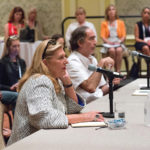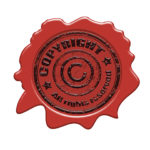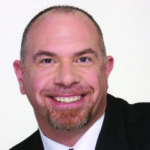Satkirin Khalsa, M.D., aboard-certified family physician in New Mexico, is troubled by the fact that as many as 400 of her physician colleagues around the country commit suicide each year (according to MedScape.net). She knows firsthand that their long hours and heavy patient loads can lead to high stress levels — a contributing factor to depression and suicide. Furthermore, as a group, physicians tend to be ignored by their own medical profession, Khalsa said, and many doctors, especially those with anxiety and depression, opt out of medical treatments.
“There is a stigma attached to physicians’ [mental-]health programs,” she said, because many doctors fear the consequences of exposure and a negative perception of their abilities. On the flip side, doctors who take better care of themselves can more easily care for their patients, and Khalsa wanted to be part of that effort. Searching for conferences for doctors that specifically address their own well-being, she came up empty-handed.
Stepping Into the Void
So Khalsa decided to create her own physician-wellness conference, with an approach to stress reduction that would be an extension of her own unique background. Khalsa was born in Berkeley, Calif., and raised in the Sikh religious tradition. Her parents, who are both yoga instructors, followed the advice of their spiritual leader, who suggested that all the children in the Sikh community attend a boarding school in northern India — which she did at the age of eight, studying yoga extensively during her seven years there.
Khalsa received her yoga-teacher certification long before attending medical school, and taught yoga to her fellow medical students. It seemed second nature to her to develop a conference to “educate peers about [yoga’s] physiologic health benefits, and provide them with applicable techniques and tools” they could put into practice for themselves, she said, as well as “use in clinical medicine.”
The conference’s setting was central to its mission. Khalsa strategically chose a venue that would help attendees easily relax, recharge, or lose themselves in a beautiful backdrop. “Copper Mountain, Colo., is an ideal setting for this specific symposium for many reasons,” Khalsa said. “The location, the village being self-sufficient, and the activities for participants and their families are fantastic.”
Copper Mountain was not just the locale for the inaugural Mountain Pose Medicine and Yoga Symposium, held in August 2011, but also its partner. The Copper Mountain Resort Association (CMRA), which serves as the local chamber of commerce, marketed the conference with a public-relations campaign, as well as a targeted direct-mail and email campaign to health-care provider mailing lists it purchased, said Erin Woods, CMRA’s marketing manager. “We also promoted [the symposium] through social media, some industry-relevant print publications, and sent emails through specific healthcare companies with which we have relationships,” she said.
Khalsa supplemented CMRA’s marketing initiative with her own word-of-mouth marketing efforts — which included her husband, Joe Alcock, M.D., an ER chief at Albuquerque’s Raymond G. Murphy VA Medical Center, who spread the word via staff meetings.
Beyond marketing support, CMRA helped fund the symposium by picking up all of the faculty per-diem and speaking fees — speakers included medical researchers and professionals, yogis, musicians, and motivational speakers — as well as their travel and lodging expenses.
Woods said that CMRA wanted to “experiment” by co-creating an event to offer the medical establishment. The inaugural event — and the second annual Mountain Pose Medicine and Yoga Symposium, held Aug. 22-26, 2012, which CMRA also underwrote — helped stimulate business for CMRA’s lodging members, Woods said. Showcasing the destination, Woods hoped, also would entice physicians to vacation there and to recommend it as a future venue host for organizations they belong to or boards they sit on.
Serious About CME
The first symposium — which had something of a yoga-festival vibe, featuring celebrity yoga personalities like Rodney Yee — attracted some 300 registrants. The second one drew significantly fewer attendees — approximately 75 physicians— who were more interested in earning wellness-based CMEs than seeking a yoga-festival experience. And, indeed, the second symposium evolved to offer more CMEs than the first, and benefited from a small educational grant provided by Heel Inc., a New Mexico-based homeopathic-remedies supplier.
Gaining acceptance for medicine and yoga wellness continuing medical education as a means to alleviate physician burnout was a challenge to begin with, since CMEs primarily teach physicians about disease management in their patients — not themselves. The American Association of Family Physicians (AAFP) reviewed the second symposium program and found it acceptable for up to 25 prescribed credits, earned through attending sessions that explored yoga’s effect on stress hormones and cardiovascular health, the benefits of a vegetarian diet, as well as some medical-practice-focused sessions. For example, the session “Yoga for Cardiovascular Disease: Medicare’s Got That Covered” provided information on insurance reimbursement.
Eat, Prescribe, Love
At both symposiums, doctors learned relaxation practices including deep-breathing exercises and yoga — both for themselves and to share the techniques with patients. Experiential learning is key to the symposium, so after a session on proper yoga form and relaxation, participants practice what they’ve learned, unrolling yoga mats in a large room and slipping into Lotus, Pigeon, and Corpse poses.
“Future [medical] conferences must take a page from Dr. Khalsa’s plan,” said Sara Gottfried, M.D., a Harvard-trained physician who presented at the 2012 symposium. “[They should] teach doctors not only new data as part of continuing education, but offer the proven rejuvenating strategies that prevent burnout, such as yoga, meditation, music, and healthy food.”
While relaxation maybe the name of the game at Mountain Pose, sessions are run like clockwork. “We have strict start and stop times monitored by someone other than the presenter or participants,” Khalsa said. Timekeepers include other physicians, guest presenters, and volunteer moderators, who keep the program on track.
Plans for the next Mountain Pose Medicine and Yoga Symposium — as yet unscheduled, but expected to be held this summer — include more “simulation and case-based presentations outside the lecture room,” Khalsa said. During mealtimes, for example, presenters will discuss topics like digestion and probiotics. She also plans to free up more time for family inclusion, she said, “to cover topics that could involve family members to a greater extent, or include activities specific for spouses or children to do during CME hours.”
Khalsa is confident that Mountain Pose is tapping into an unmet need. At other medical conferences that she attends throughout the United States, she meets physicians eager to learn how to better balance their busy professional lives and self-care needs. While attending the AAFP Scientific Assembly in Philadelphia this past October, Khalsa observed other attendees inquire about future wellness conferences designed for physicians.
“CME on wellness is definitely in demand within the health-care system,” Khalsa said, “and specifically in demand by the providers of the healthcare system.”
Preventing Physician Burnout
The Osler Symposium also provides medical education, networking, and a provocative lineup of sessions and activities geared toward physician health and well-being. Medical-conference professional Janice Mancuso launched the event in May 2011; the second symposium was held Oct. 20-23,2012, in San Diego.
Mancuso said the conference “has been thoughtfully designed to appeal to physicians who are experiencing burnout and/or are contemplating leaving medicine, as well as those who simply need time to ‘recharge’ their batteries.” The program addresses the reality of physicians’ long days and heavy patient loads with breakout sessions such as “Applying the New Science of Happiness,” “Learn the Lessons of Social Intelligence,” and “Reflective Writing and Healing.”
Satkirin Khalsa, M.D., is a fan of the Osler Symposium, which covers a broader range of stress-reduction techniques than her Mountain Pose Medicine and Yoga Symposium. Khalsa said: “[The Osler Symposium] … incorporates endeavors and hobbies and interests like journaling, poetry, music, and other creative pursuits… to remember our passion as individuals, which enhances balance in life and wellness overall.”
More Resources
Learn more about the Mountain Pose Medicine and Yoga Symposium at convn.org/mountain-pose.
For more information on the Osler Symposium, visit oslersymposia.org.



